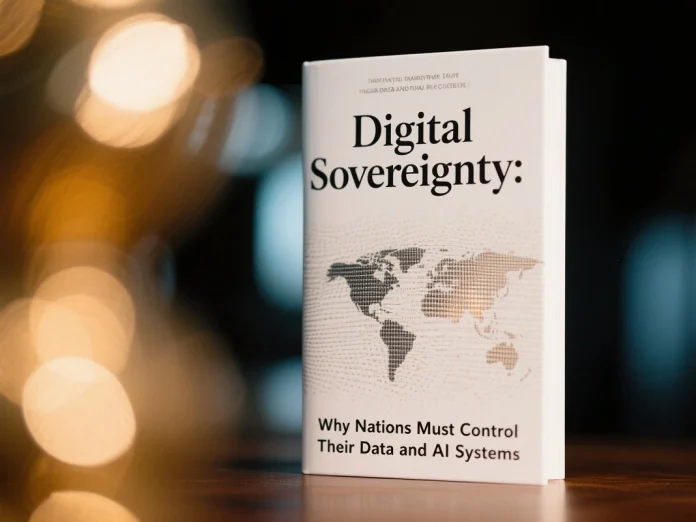In the 21st century, data is power—and Artificial Intelligence is the engine that drives it. Just like oil fueled the Industrial Age, data and AI fuel the Digital Age. But here’s the catch: the control over these powerful resources isn’t equally distributed. Most nations today are dependent on a handful of global tech giants and foreign governments for their digital infrastructure, cloud storage, and AI capabilities.
This is where Digital Sovereignty comes into play—a concept that may decide the future winners and losers in the global digital economy.
What is Digital Sovereignty?
Digital Sovereignty refers to a nation’s ability to control, manage, and protect its own digital infrastructure, data, and AI systems without being dependent on foreign entities.
It’s about having full authority over:
- Where your citizens’ data is stored
- Who can access it
- How it’s processed
- What AI models run on it
- Which algorithms shape your nation’s decisions
Without it, a country risks becoming digitally colonized—where decisions, data flows, and even national security are influenced by external powers.
Why Digital Sovereignty Matters More Than Ever
In the old days, controlling your borders and natural resources was enough to ensure sovereignty. But in the Digital Age, data borders are just as important as physical ones.
Here’s why nations can no longer afford to ignore Digital Sovereignty:
1. National Security Threats
Data is the lifeblood of modern defense systems. If sensitive data is stored in foreign servers or processed by external AI systems, it can be exploited for cyberattacks, espionage, or political manipulation.
2. Economic Independence
AI is driving global economies. If a nation’s AI infrastructure relies on foreign technology, it risks losing competitiveness and becoming dependent on another country’s innovation cycles.
3. Cultural Preservation
AI algorithms influence what people see online—from news feeds to entertainment. If these algorithms are controlled by foreign entities, local cultures and narratives may be overshadowed or distorted.
4. Privacy Protection
When personal data flows outside national boundaries, it can be subjected to different privacy laws—or none at all. Maintaining control means ensuring citizens’ rights are respected.
The Geopolitics of Digital Sovereignty
Make no mistake—Digital Sovereignty is the new geopolitical battlefield.
Countries like China have long embraced digital independence by building their own cloud ecosystems, AI platforms, and even social media networks. The European Union has introduced the GDPR and is pushing for AI regulations to reduce reliance on U.S. tech giants. Meanwhile, countries in Africa and Asia are racing to develop their own AI and data infrastructure to avoid being caught in a new form of digital colonialism.
The question is no longer if nations need Digital Sovereignty, but how fast they can achieve it.
AI and the Illusion of Control
Here’s the uncomfortable truth: Many nations believe they control their AI systems, but in reality, the core technologies, training data, and cloud infrastructures belong to a handful of U.S. and Chinese corporations.
Think about it:
- Your country’s healthcare AI? It may be running on foreign cloud servers.
- Your city’s traffic AI? It may depend on proprietary algorithms from abroad.
- Your schools’ digital platforms? They may store student data outside your country.
Without Digital Sovereignty, a foreign company—or government—could simply “switch off” a nation’s critical systems during a political or trade dispute.
Building Digital Sovereignty: The 5 Pillars
Achieving Digital Sovereignty isn’t just about passing laws. It requires a comprehensive strategy that combines technology, policy, and education.
1. Local Data Centers
Invest in national cloud infrastructure to store and process data domestically.
2. Homegrown AI Development
Encourage local AI startups and research institutions to build proprietary models.
3. Cybersecurity Capabilities
Create robust defense systems to protect digital assets from cyberattacks.
4. Strong Legal Frameworks
Implement data protection, AI ethics, and digital infrastructure laws that prioritize national interests.
5. Digital Literacy
Educate citizens and businesses on data privacy, cybersecurity, and AI ethics to ensure long-term resilience.
The Risks of Ignoring Digital Sovereignty
Failing to prioritize Digital Sovereignty could have catastrophic consequences:
- Data Leaks. Sensitive information about citizens, military, or industries could be stolen or misused.
- Economic Dependence. Nations may become mere consumers in the AI economy rather than producers.
- Manipulation & Disinformation. External powers could use AI-driven propaganda to influence elections or public opinion.
- Loss of Innovation. Relying on foreign tech stifles local creativity and slows national progress.
Case Studies: Nations Taking Action
- France. Developed “Gaia-X,” a European cloud project aimed at reducing dependency on U.S. platforms.
- India. Pushing for local data storage laws and developing indigenous AI projects.
- Russia. Building its own internet infrastructure that can run independently from global networks.
These examples show that Digital Sovereignty is not a theoretical concept—it’s a real, urgent movement.
Digital Sovereignty and the Future of Nations
The future will belong to nations that control their data, master their AI, and build secure digital infrastructures.
In the next decade, Digital Sovereignty will be as important as military strength or economic stability. Countries that fail to secure their digital assets will find themselves vulnerable not just to cyberattacks, but also to economic and political domination.
Final Thoughts
We are entering an era where wars may be fought not with bombs and tanks, but with algorithms and data flows. Nations that understand this and take steps toward Digital Sovereignty will safeguard their independence, protect their cultures, and ensure their place in the global digital economy.
If your nation doesn’t control its data and AI systems, it doesn’t truly control its future. The time to act is now—because in the Digital Age, sovereignty is no longer just about land and borders… it’s about code and servers.




